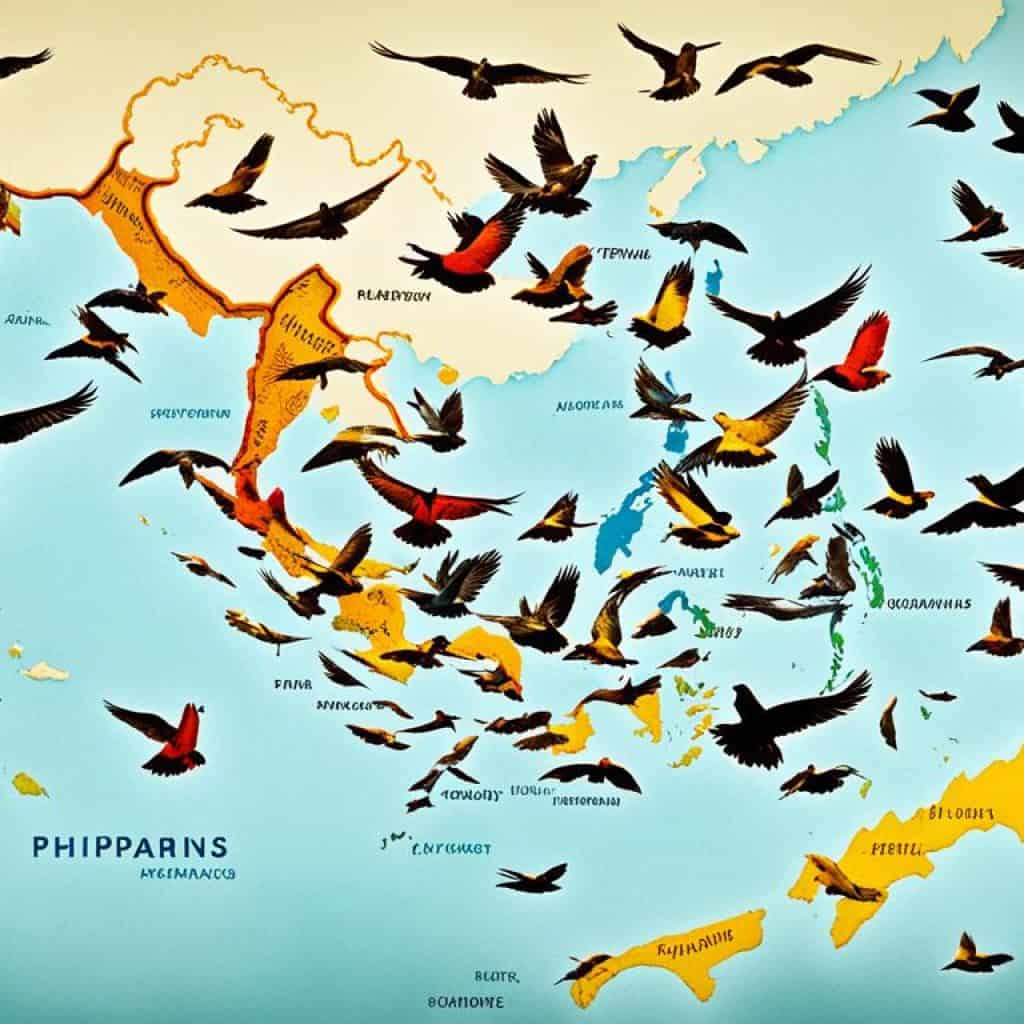Ever wondered about the real meaning of Filipino words and phrases? Struggling to get accurate English translations for them? Don’t worry! Our guide has a wide vocabulary and exact translations. It helps you uncover the secrets of the Philippine English language.
Key Takeaways:
- Enhance your understanding of the Philippine English language with our comprehensive dictionary guide.
- Discover accurate English translations of Filipino words and phrases.
- Unravel the hidden meanings behind popular Filipino terms.
- Improve your communication skills in the Philippine English language.
- Unlock the linguistic diversity of the Philippines with our valuable online resource.
Overview of the Philippine English Dictionary
The Philippine English Dictionary is a great resource for words and phrases from the Philippines. It helps people get better at understanding and talking in Philippine English. As an online tool, it gives accurate English meanings for Filipino words, perfect for anyone learning the language or living in the country.
This dictionary has a huge list of words covering many topics. It’s good for both new learners and those already familiar with the language. Whether you’re studying, working, or living in the Philippines, it has everything you need to know more words and speak better.
Finding words in the Philippine English Dictionary is easy because of its user-friendly design. When you search for a word, you’ll see not just its meaning but also examples and related words. This helps you understand how to use it properly.
The dictionary also has tools like pronunciation help, word origins, and tips on how to use words. These features make it easier to learn the language fully. By using it, you can know more about the Philippine English language in detail.
If you want to grow your vocabulary, speak more fluently, or just communicate better in the Philippines, this dictionary is a great help. It’s full of useful words and phrases, gives accurate translations, and is easy to use. It meets the needs of language learners and helps them navigate through Philippine English with ease.
| Key Features of the Philippine English Dictionary | Benefits |
|---|---|
| Comprehensive collection of words and phrases | Enhances vocabulary and language proficiency |
| User-friendly interface | Seamless navigation and quick access |
| Contextual examples and related terms | Deeper understanding of word usage and nuances |
| Learning aids (pronunciation guides, word origins, parts of speech, usage tips) | Comprehensive learning experience |
Importance of the Philippine English Dictionary
The Philippine English Dictionary is a key tool for understanding words in the Philippines. It gives correct word meanings and helps in searching for terms. It also improves how we understand the language.
Having a tool like the Philippine English Dictionary is very important. It lets users dig into word meanings and see how words are used differently. This helps people feel confident in using the Philippine English language.
This dictionary is great for looking up unfamiliar terms or jargon. It makes sure you’re using words correctly. You can find everything from industry terms to cultural references, helping users communicate better.
The dictionary also helps you understand the language better. It provides insight into how Philippine English is structured and used. By learning about grammar, expressions, and style, users can communicate more effectively.
The extensive database and easy-to-use interface of the Philippine English Dictionary make it vital for those learning the language. It’s great for teachers, translators, or anyone wanting to know more about Philippine English. Users can overcome language barriers, improve their fluency, and appreciate the language’s subtleties.
| Benefits of the Philippine English Dictionary |
|---|
| Accurate word meanings |
| Facilitates terminology search |
| Enhances language comprehension |
| Easy-to-use interface |
| Comprehensive database |
Migration and Language Influences
The United States is a top choice for Filipino migrants. This migration greatly affects the two countries’ cultures. American English’s influence on Philippine English is especially noticeable.
American English has woven into Philippine English in daily chats, media, and schools. This blend brought American words, sounds, and grammar into Philippine English.
Migration changes how people use language and what they eat. Filipinos coming back from the U.S. often introduce American food to the Philippines. This mixes American dishes into local meals.
This link between moving places, language, and what we eat shows why it’s essential to have a detailed Philippine English dictionary. A good dictionary helps people understand the mix of American and Philippine English. This supports better communication and cultural connections.
Migration and the Evolution of Filipino Cuisine
Migration’s influence isn’t just on language but also Filipino food. Filipinos returning from the U.S. mix American cooking methods and ingredients with traditional Filipino tastes. This mix has led to a rich and lively food scene in the Philippines.
The dish “adobo” is a great example. It comes from Spanish and Filipino roots but has gotten a unique Filipino-American twist with soy sauce, vinegar, and garlic. This shows how migration can inspire new food creations.

| Dish | Origin | Influences |
|---|---|---|
| Adobo | Spanish and indigenous Filipino | American flavors and ingredients |
| Pancit | Chinese | American-style chow mein |
| Halo-Halo | Philippine | American-style ice cream and toppings |
This table shows how migration has blended different food traditions. American tastes have changed traditional recipes, making Philippine cuisine more dynamic.
“Migration has shaped Philippine language and food, blending traditional and American flavors. The food culture in the Philippines has grown richer and more diverse because of these culinary influences.”
Understanding migration’s effect on language and food is key to appreciating the Philippines’ culture. A thorough Philippine English dictionary can help people connect across cultures. It captures the country’s rich cultural mix.
Historical Dictionary of the Philippines
The Historical Dictionary of the Philippines is a great resource. It has lots of info on key people, places, and moments in Philippine history. It’s full of details about the country’s rich culture and important events.
This dictionary lets you travel through time to learn about important figures and events. It’s perfect for students, researchers, or anyone wanting to know more about the Philippines.
You’ll find information on famous Filipino figures, landmark places, big events, and key institutions. Exploring these topics helps understand the Philippines better.
If you’re into academic research, this dictionary is handy. It offers an overview of historical background and significance. It also includes a bibliography for those who want to dig deeper into certain topics.
This dictionary is not only informative but also connects you to the Philippines’ cultural heritage. It’s great for anyone interested in history, whether you’re a student or a researcher.
Sample Entries from the Historical Dictionary of the Philippines
| Category | Entry | Description |
|---|---|---|
| Persons | Jose Rizal | A prominent Philippine national hero and writer who played a crucial role in the fight for independence from Spanish colonial rule. |
| Places | Intramuros | The historic walled city of Manila, known for its Spanish colonial architecture and rich cultural heritage. |
| Events | Philippine Revolution | A period of armed struggle against Spanish colonial rule, leading to the establishment of the First Philippine Republic. |
| Institutions | University of the Philippines | A premier educational institution in the Philippines, renowned for its academic excellence and contributions to nation-building. |
Tagalog-English/English-Tagalog Standard Dictionary
The Tagalog-English/English-Tagalog Standard Dictionary is great for learning both languages. It uses a root-based approach. This helps users improve their Tagalog and English.
It provides accurate translations and shows how words are derived. This makes it key for those wanting to better understand and communicate. By looking into word origins, users gain deeper insights into the languages.
The dictionary includes a sketch of grammar. It covers essential rules and structures in Tagalog and English. This helps learners understand how sentences are built.
There’s also a handy vocabulary appendix in the dictionary. It lists common words and phrases. This helps users expand their vocabulary easily.
| Key Features of the Tagalog-English/English-Tagalog Standard Dictionary: |
|---|
| Comprehensive two-way dictionary |
| Root-based approach for language learning |
| Accurate translations and frequent derivations |
| Grammar sketch for understanding sentence structure |
| Vocabulary appendix for expanding vocabulary |
This dictionary is perfect for language lovers, students, or travelers to the Philippines. It’s a must-have for navigating through Tagalog and English. Its easy-to-use approach and thorough content make it invaluable.
Ilocano Dictionary and Phrasebook
Want to learn the Ilocano language? The Ilocano Dictionary and Phrasebook is your go-to. It’s perfect for anyone looking to improve their Ilocano skills. Whether you like learning on your own or in a class, this guide is crucial.
The book starts with grammar basics. This helps you get the language structure and rules. You’ll also explore Ilocano words in more detail.
The phrasebook in this guide is very useful. It has phrases and expressions for everyday situations. This makes practicing your conversation skills easy.
One of the best features is the English to Ilocano dictionary. It helps you translate English into Ilocano smoothly. This is great for building your vocabulary and understanding.
No matter how you prefer to learn, this book fits your style. It works well for both self-study and classroom learning. The content is easy and fun to follow.
The Ilocano Dictionary and Phrasebook Benefits:
- Introductory grammar section
- Outline of morphology
- Comprehensive English to Ilocano dictionary
- Wide range of phrases and expressions in the phrasebook
Ready to learn Ilocano? The Ilocano Dictionary and Phrasebook is a great start. Dive into this exciting language and open up new ways to connect and understand.
Overview of the Ilocano Dictionary and Phrasebook
| Features | Benefits |
|---|---|
| Introductory Grammar Section | Lays the foundation for understanding Ilocano language structure |
| Outline of Morphology | Explores the intricacies of Ilocano word forms |
| Phrasebook | Provides a wide range of commonly used phrases and expressions for practical language practice |
| English to Ilocano Dictionary | Offers accurate translations for expanding vocabulary and language comprehension |
University of Hawaii Press Ilocano Dictionary and Grammar
The University of Hawaii Press Ilocano Dictionary and Grammar is a great tool. It goes deep into the Ilocano language. This dictionary is perfect for linguists, students, and anyone interested in Ilocano.
It has lots of info and pays close attention to the details. It is very helpful for learning about the roots and special parts of Ilocano.
The dictionary not only lists words but also teaches grammar. This helps users understand the language’s structure. It has a phonology section to get the pronunciation right. This ensures you can speak Ilocano accurately.
There are also Ilocano-English and English-Ilocano sections. These help with translating between the two languages. They make it easier to learn and communicate.
What makes this dictionary special are its grammatical charts. These charts show the grammar rules of Ilocano in a clear way. Songs and maps add to the learning, giving a cultural background. This makes it more fun to learn the language and understand its culture.
Features of the University of Hawaii Press Ilocano Dictionary and Grammar
| Features | Description |
|---|---|
| Comprehensive Content | The dictionary has a wide range of Ilocano words, phrases, and expressions. This allows for deep language exploration and understanding. |
| Root-based Approach | It uses a root-based approach to teach the language. This helps in expanding vocabulary and understanding words better. |
| Grammar Section | There’s a section just for grammar. It gives a detailed explanation of the rules. This helps users understand the language structure well. |
| Phonology Outline | This outline gives insights on correct pronunciation and accentuation. It helps improve spoken Ilocano. |
| Ilocano-English and English-Ilocano Sections | These sections help with translating between Ilocano and English. They are useful for translation needs. |
| Grammatical Charts | Visual aids, like grammatical charts, make it easier to understand Ilocano grammar. They offer practical language usage guidance. |
| Songs and Maps | Adding songs and maps brings a cultural side to learning. It enriches the understanding of the Ilocano language and heritage. |
Uncovering the Dynamics of Love and Care
The love and care in transnational families are deeply complex. We explore how sending food back home and controlling food in the origin country show these complex dynamics.
Sending food abroad is more than just feeding family. It’s a symbol of love, bridging gaps and tightening family ties. The packages remind families of their cultural roots, bringing a piece of home to them.
But, this gesture also unveils power play and tensions. The sender decides what food to send, picking what memories to pass on. This control can show power imbalances, affecting relationships and decisions.
Moving on, “social remittances” change how food is seen and consumed in the Philippines. These are ideas and behaviors from abroad that impact local food culture. They affect how food is prepared, eaten, and linked to cultural shifts.
“Food packages sent from abroad not only serve as a means of sustenance but also carry deep emotional significance, expressing love and care.”
To understand love and care in transnational families, we must see their complexity. These acts show power dynamics, tension, but also deep connections and shared identity through food.
Food Consumption Trends in the Philippines
Let’s look closer at food habits in the Philippines, comparing traditional dishes and what’s in family food packages:
| Traditional Filipino Dishes | Food Items in Transnational Family Food Packages |
|---|---|
| Adobo | Canned meats and preserved goods |
| Sinigang | Instant soup mixes and seasoning packets |
| Kare-Kare | Peanut butter and condiments |
| Lechon | Chicharrones and pork rinds |
| Pancit | Instant noodles and pasta |
This table shows Western influence and transnational life reshaping Philippine food culture. Convenience foods in packages mark changing tastes and complexity in transnational family dynamics.
Building Social Prestige Through Food Parcels
Balikbayan boxes, or food parcels, are important among Filipino migrants. They show love and care. They also boost the social status of the migrants and their families. By looking at these boxes, we can learn about migration, social dynamics, and food in the Philippines.
When Filipino migrants send these boxes back home, it’s more than just goods. It’s about the meaning behind the act. These parcels are filled with local products and delicacies. They connect migrants to the Philippines and its culture. They show their families the results of their hard work abroad.
“Balikbayan boxes are not just about the items inside; they are about love, memories, and a sense of identity. They carry with them the hopes and dreams of Filipino migrants, and they hold immense value in the eyes of their families back home.”
Getting a balikbayan box is a big deal for families in the Philippines. The arrival is celebrated with joy. The box’s contents are shared, showing the migrant’s generosity. It becomes a social moment, strengthening family ties.
The act of sending a balikbayan box includes more than just food. It’s about sending comfort and luxury items too. These boxes often have branded goods and electronics. They show affluence and social status.
By sending these boxes, migrants elevate their social prestige. It shows they are successful and can care for their families. This act raises their status within the community.
Examining the Contents
Each balikbayan box is unique and based on family preferences. They may include imported and local products, or handmade treats. The items show the migrant’s thoughtfulness and desire to share the best of their host country.

The Symbolic Value
The exchange of balikbayan boxes is more than just sending items. It’s about the sacrifice and determination of migrants. It shows their love for their families and culture. Food becomes a symbol of connection and identity. It strengthens family bonds and shapes social dynamics among Filipino migrants.
Conclusion
The Comprehensive Philippine English Dictionary Guide is crucial for those wanting to better understand Philippine English. It offers a wide range of vocabulary and accurate English translations of Filipino words. This makes it easy for users to learn about the Philippines’ culture and language.
The guide also looks at how migration and language shape Philippine English. It shows why a detailed dictionary is key to keeping up with the language’s changes. Resources like the Historical Dictionary of the Philippines help users explore the country’s history. Meanwhile, the Tagalog-English/English-Tagalog Standard Dictionary improves language skills.
In short, the Comprehensive Philippine English Dictionary Guide is an essential online tool. It meets the language needs of anyone aiming to communicate well in the Philippines. With precise translations, insights on migration, and specialized dictionaries, it helps users excel in the Philippine English-speaking world.







Add comment